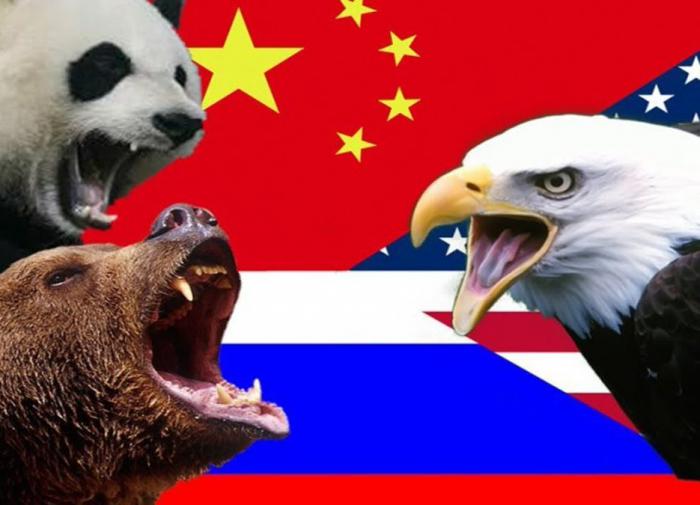China and Belarus – Russia's key allies in its opposition to USA and NATO
Russia has been preparing for the special operation in Ukraine for eight years, including in the international arena. There were two key events along the way. One of them is a tacit mutual assistance pact with China. The second one was made by the West.

Russia's key allies — China and Belarus
Many probably remember Putin's face as he was watching the opening of the Beijing Olympics on February 4. The West boycotted the Games diplomatically. As soon as the Olympics ended, Russia kicked off the special operation in Ukraine.
Beijing immediately distanced itself from the avalanche of sanctions that the West started imposing against Russia. China took a pro-Russian position at the UN Security Council and proceeded to explain the reasons behind the special operation to the countries that depended on China economically and politically.
China has consistently pointed to the US and NATO as the prime instigators of the hostilities. Xi Jinping personally told Joe Biden that the essence of the Ukrainian crisis was about Russia's and Ukraine's security concerns, whereas the problem arose due to provocations of the United States and Washington's unwillingness to understand Moscow's concerns.
The Chinese leader has repeatedly emphasised the need to abandon the ideas of inter-bloc confrontation and hegemonism.
Beijing's position reduced the anti-Russian coalition of the West in the UN to about 50 countries that were heavily dependent on the United States.
Thus, China provided the Russian Federation with a strong back in politics and economy:
- China started buying its energy resources and food;
- China provided Russia with exports of goods that Russia lost in the West (such as microchips).
Confidential agreement between Russia and China
What did Xi Jinping get in return? Xi got Putin's support in the future, when China starts fighting for control over Taiwan.
Owen Matthews, a "specialist for Russia", pointed out in his article that Putin and Xi pledged to support each other. Moreover, Mathews wrote that Moscow and Beijing, similarly to Article 5 of the NATO Charter, which says that an attack on one member is an attack on all, pledged to provide each other with military assistance in the event of a foreign invasion of their territory.
Matthews tries to minimise the value of such an agreement, but Russia attaches greater importance to economic, rather than military aid from China. Russia is a nuclear power that possesses destructive hypersonic and underwater weapons and has a strong industrial resource.
If the West invades Taiwan, Russia may supply its weapons to China to repel aggression. This is evidenced by the military exercises, in which Russia and China used a joint command and control system. The system gave the two countries unprecedented levels of access that indicated a high level of strategic and military coordination.
After the 20th Congress of the Communist Party of China, Chinese Foreign Minister Wang Yi said that China would firmly support the Russian side under the leadership of President Putin in uniting the Russian people to overcome difficulties and obstacles and realising the strategic goal of Russia's further development as a major power.
Belarus's decisive move towards Russia became another political event that made it possible to launch the special operation in Ukraine. Until recently, Belarus was trying to play both ends against the middle. However, Belarus President Lukashenko announced his unconditional support to Russia in its fight against the Kyiv regime.
In military terms, Belarus ensured the presence of the Russian Armed Forces on its territory, an opportunity to take Kyiv, move further to western Ukraine and abolish the threat for NATO forces to infiltrate Russia along the shortest path.
Subscribe to Pravda.Ru Telegram channel, Facebook, RSS!


